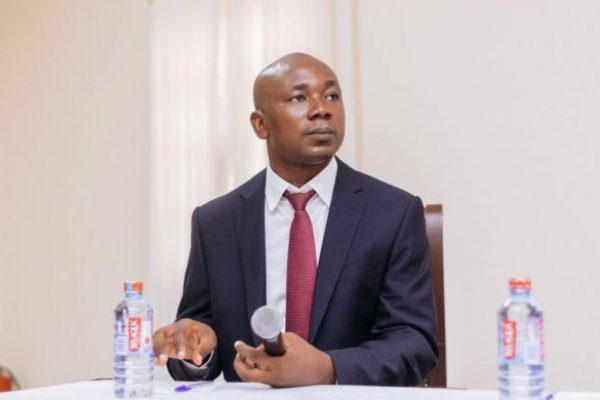Economist and professor of finance at the University of Ghana, Prof Godfred Bokpin, has asserted that the cedi can only be stabilised temporarily from further depreciation in its performance against major foreign currencies but continue slipping as has been the trajectory for decades.
He attributes this trend to the lack of a robust macroeconomic policy support for the cedi.
Speaking on Joy FM's Super Morning Show on Monday, May 13, Prof Bokpin explained that the cedi has persistently suffered depreciation since its introduction in July 1965.
He anticipates intermittent periods of relative stability but underscores the likelihood of continued depreciation, even with optimal economic measures in place.
“If we do everything right we will still expect that the cedi will depreciate by a certain margin given the relative strength of the economy.
“It's a shame that we haven't been able to provide the cedi with the necessary support through sound macroeconomics policy making, including responsible fiscal management and prudent monetary policy.
“As a result, we've denied the cedi some basic rights and then expect it to perform magic, when in reality, the cedi's behaviour is a reflection of weak underlying fundamentals”explained.
In referring to the Vice President, Dr Mahamudu Bawumia's popular phrase about the cedi's depreciation, Prof Bokpin argued that the exchange rate will expose the currency as long as the fundamentals of the economy remain weak.
Prof Bokpin mentioned that in 1964, Ghana had inflation of less than 1%. At that time, Ghana did not have its national currency and used the British West African pound, limiting its monetary control.
He said even after gaining independence, printing currency remained out of reach, until in July 1965 when the cedi was introduced. However, inflation has been a continuous challenge since then.
As of today, Monday, May 13, one US dollar averages GH¢14.5 according to Joy Business.
Analysts are envisaging a continuous weakening trajectory of the local currency as foreign exchange demand-supply disparity remains substantial.
They, however, anticipate improved liquidity conditions towards the end of quarter two of 2024 after the International Monetary Fund (IMF) board approves the second review of Ghana’s programme. This will lead to a tranche disbursement of US$360 million under the IMF programme.
Latest Stories
-
Syria’s minorities seek security as country charts new future
30 minutes -
Prof. Nana Aba Appiah Amfo re-appointed as Vice-Chancellor of the University of Ghana
37 minutes -
German police probe market attack security and warnings
37 minutes -
Grief and anger in Magdeburg after Christmas market attack
38 minutes -
Baltasar Coin becomes first Ghanaian meme coin to hit DEX Screener at $100K market cap
1 hour -
EC blames re-collation of disputed results on widespread lawlessness by party supporters
2 hours -
Top 20 Ghanaian songs released in 2024
2 hours -
Beating Messi’s Inter Miami to MLS Cup feels amazing – Joseph Paintsil
2 hours -
NDC administration will reverse all ‘last-minute’ gov’t employee promotions – Asiedu Nketiah
2 hours -
Kudus sights ‘authority and kingship’ for elephant stool celebration
2 hours -
We’ll embrace cutting-edge technologies to address emerging healthcare needs – Prof. Antwi-Kusi
3 hours -
Nana Aba Anamoah, Cwesi Oteng special guests for Philip Nai and Friends’ charity event
3 hours -
Environmental protection officers receive training on how to tackle climate change
3 hours -
CLOGSAG vows to resist partisan appointments in Civil, Local Government Service
4 hours -
Peasant Farmers Association welcomes Mahama’s move to rename Agric Ministry
4 hours

